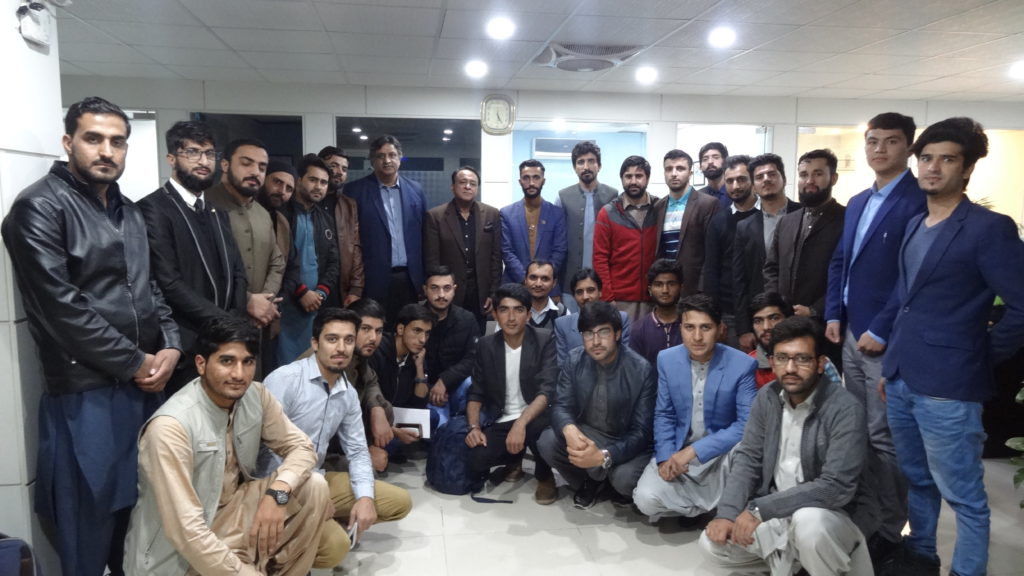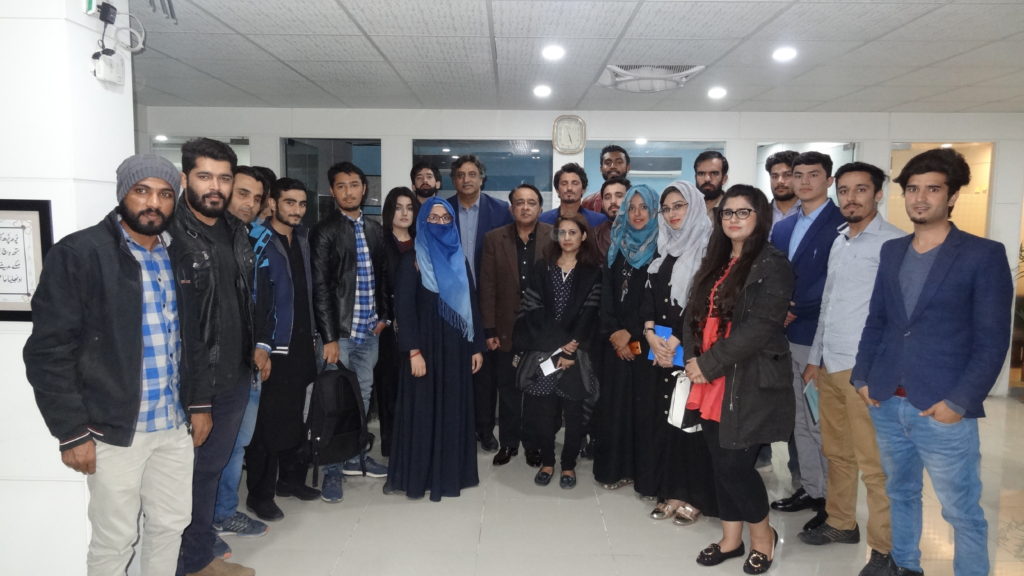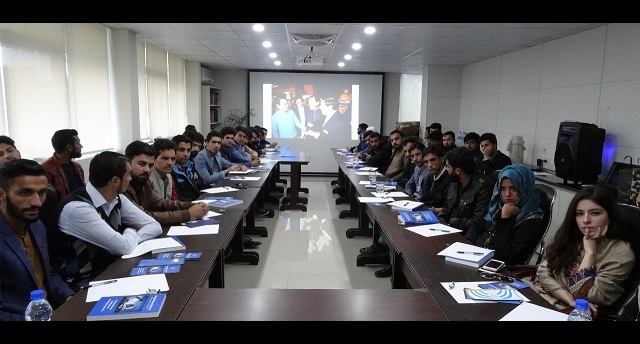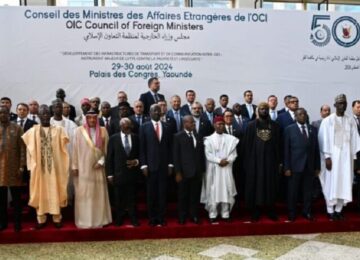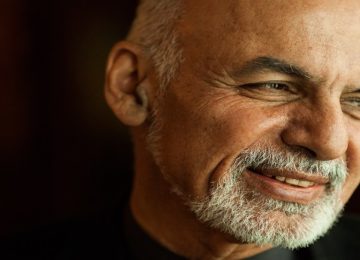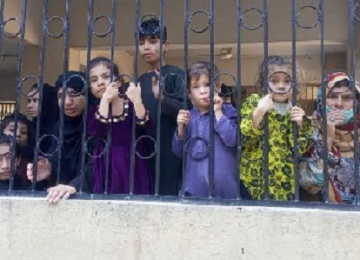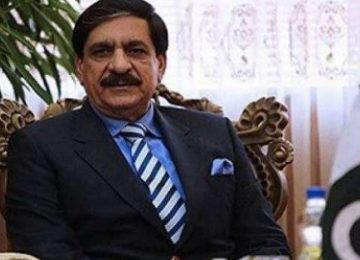November 29, 2019
Two billion jobs will disappear by 2030, 75% of companies are going to vanish in the next five years, out of which 50% are not born yet. 85% of the jobs that will exist in 2030 have not been invented yet. What does this data tell us? These statistics are indicating that we are not ready for the changing dynamics of the future employment. Most of the employers complain that they cannot find the right person for the job. Organizations spend almost 50% of their expenditure on trainings and they are not happy about it. University graduates are not ready to cope with the changing industry. Youth needs to get smart, innovative, creative, and work on the skill development of modern technology and IT, said Dr. Nadeem Ahmed Khan, Head of the Department of Business Studies, PIDE, Islamabad, while talking to Pak-Afghan Youth, during a workshop organized by Afghan Studies Center (ASC) on November 28, 2019.
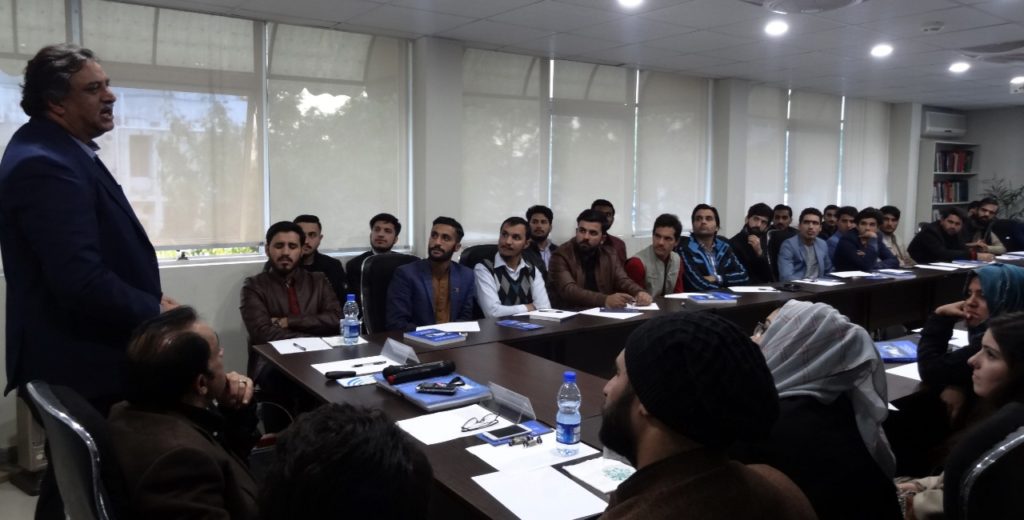
The ASC’s 14th Youth Pak Afghan Training Working was held at CRSS head office in Islamabad, and the theme of the workshop focused on “Shortage of Talent and Dynamics of Future Employment”. The workshop was attended by over 50 Pakistani and Afghan students and young professionals studying or working in different institutions and organizations across Pakistan. Many had traveled from Peshawar, North Waziristan, Khyber, Kurram, Mohmand, Charsadda, Abbottabad, Haripur, Rawalpindi, Balochistan, and Giligit Baltistan to participate in the workshop. Afghan students residing in Pakistan also belonged to various provinces of Afghanistan.
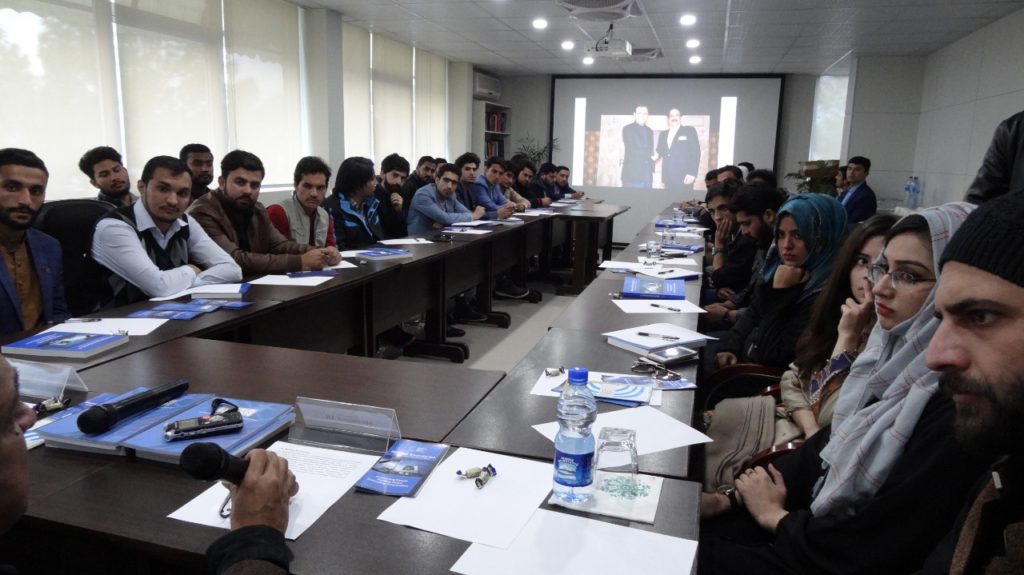
“The data generated in the last two years is more than all the data ever produced in the entire human history”, said Dr Khan. In his presentation he further elaborated that we are living in the Fourth Industrial Revolution; boundaries are getting blurred between the physical, digital, and biological worlds. It is a fusion of advances in artificial intelligence (AI), robotics, the Internet of Things (IoT), 3D printing, genetic engineering, quantum computing, and other technologies. These developments call for innovative approaches in the educational system. Education, as we know it, is obsolete. It still acts as a gateway to knowledge that is no longer needed with the rise of internet. Critical thinking, complex problem solving, creativity, emotional intelligence, computational thinking, cognitive flexibility etc., are few of the ingredients we need to plug in the education machinery of our age.
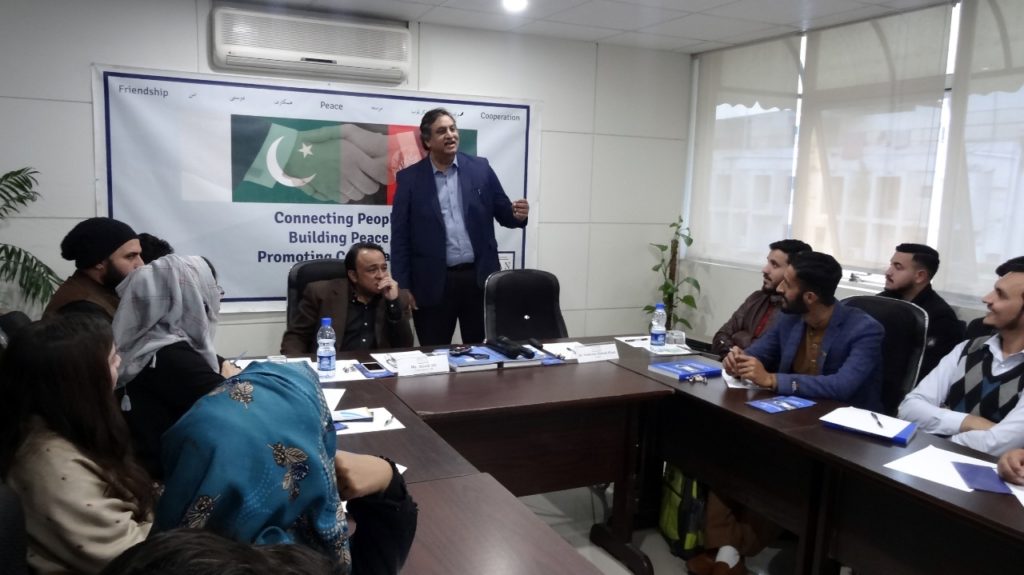
“There is only one constant in the world i.e. change. We need to change with the changing patterns of the world around us”, Dr. Khan emphasized to the participants. “Thus, adaptability is the key to our survival. Technology is a must in all our future equations. The world is moving towards techno-economy and techno-politics”, said Dr Khan. The workshop urged the youth from both countries to differentiate themselves from others and to brush up on their skills which are in demand so they can justify why they should be hired.
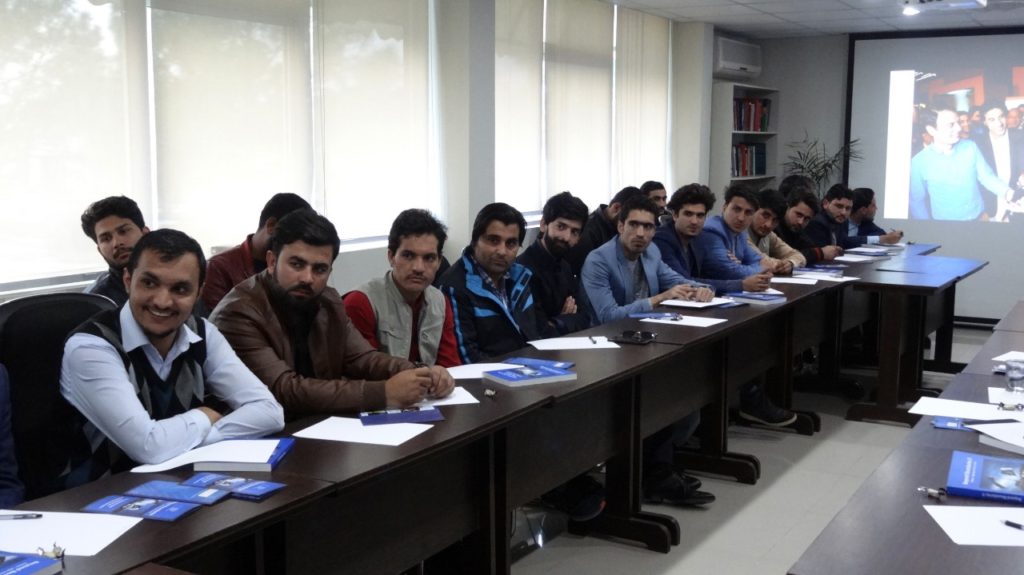
Afghan Studies Center is a sister organization of the Center for Research and Security Studies (CRSS). As a youth-based platform, ASC has been working for the skill development, capacity building, and inculcation of critical thinking in the youth of Pakistan and Afghanistan, through a series of Pak- Afghan Youth Dialogues, and Pak- Afghan Youth Training Workshops. Established in April 2017, the Center currently has alumni of over 2000 members.
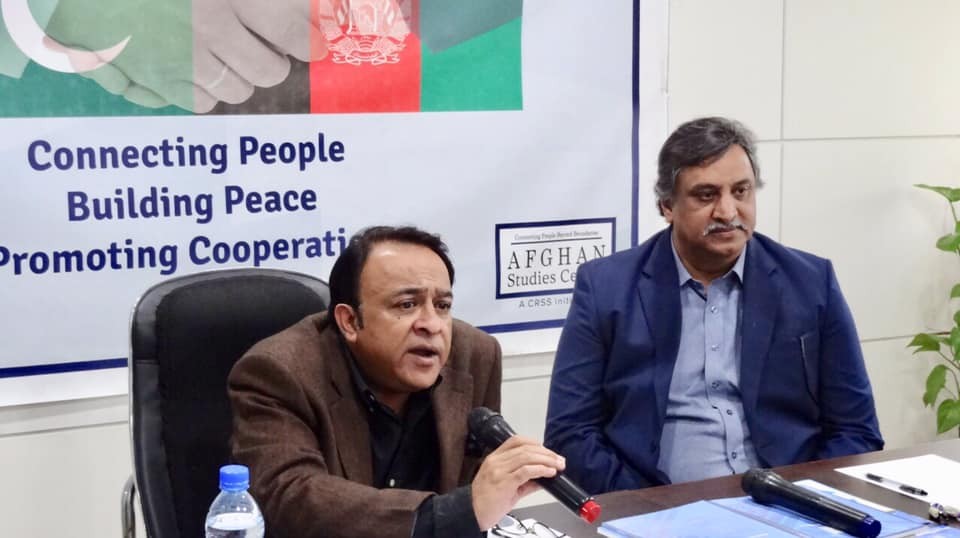
CRSS Project Director Mr. Aized Ali apprised the participants about the ongoing CRSS Pak-Afghan Track 1.5/II Initiative ‘Beyond Boundaries’ which has so far convened 17 high level meetings between the two Pak-Afghan influencers’ groups, to bridge the gulf of mistrust and improve bilateral relations between Pakistan and Afghanistan. He told the participants that the Afghan Studies Center emerged from this initiative, aiming to provide the youth of both countries a platform to inculcate critical, creative and out of box thinking, and to dispassionately interact and exchange ideas as they emerge as future leaders and ambassadors of peace.
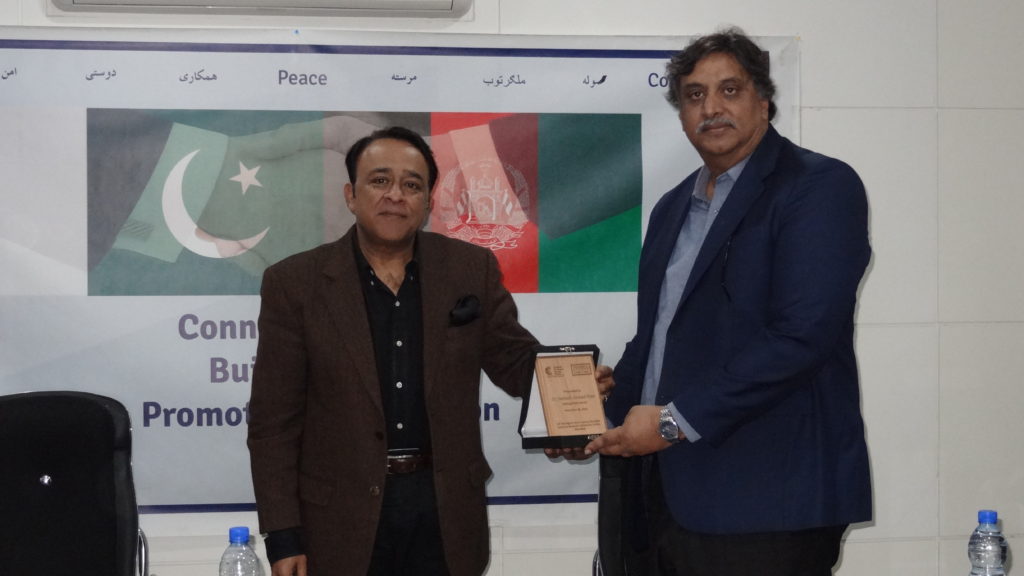
At the end of the training session, ASC team presented the respected trainer with an honorary shield of appreciation, followed by group pictures with the participants.
